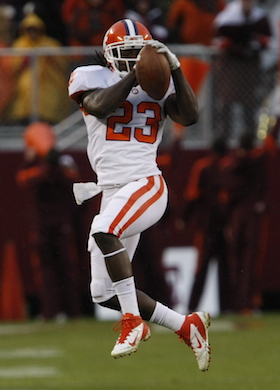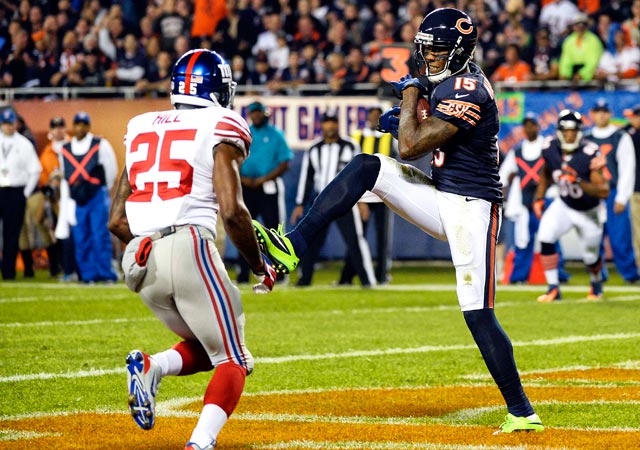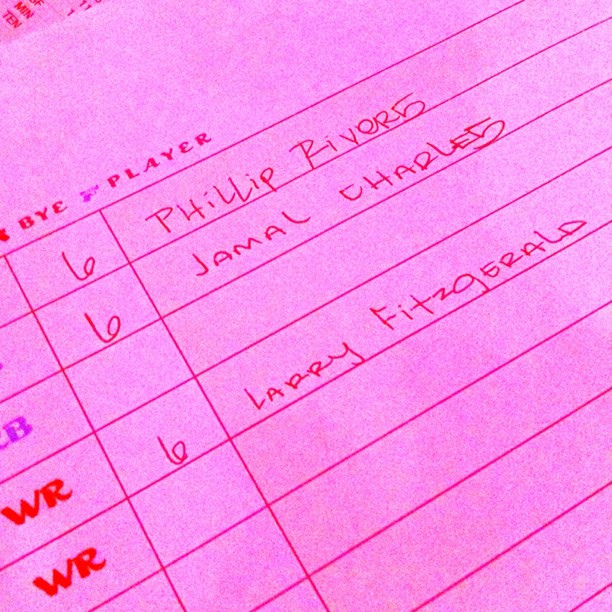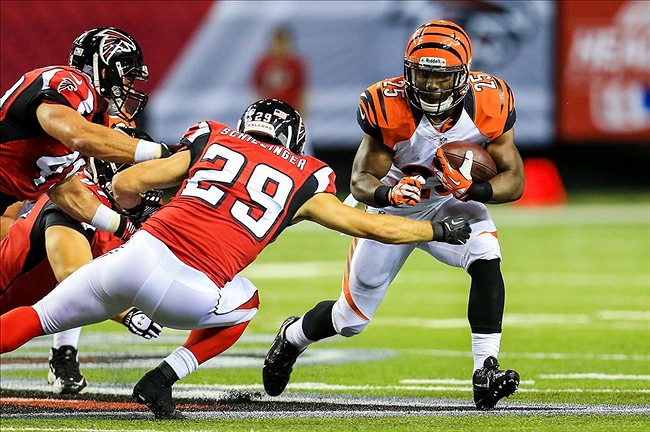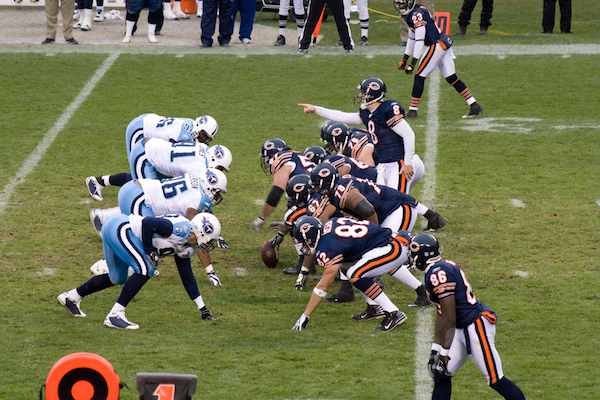Dear Sports Fan,
First time playing fantasy football here. What does it mean when someone is listed as Probable or Questionable? If someone (say Andre Ellington) has a Sunday game and has not been seen in practice till Wednesday, is it a sign they won’t start that week? Also, what kind of injuries are the worst? Ankle?
Best regards,
Mengster
— — —
Dear Mengster,
It sounds like you’ve really caught the Fantasy Football bug! As I wrote in my recent post about what it means to start or sit a player in fantasy football, predicting which players on your fantasy team are most likely to play well in their real games is a big part of playing fantasy football. A player who is too injured to play is 100% positive to not score any points for your team, so researching and following your players’ injuries is important business. Luckily for us, NFL teams are required to put out injury reports every day which file all of their players as either healthy or under one of the four possible standard injury designations: out, doubtful, questionable, and probable. It’s actually not luck, the NFL requires teams do this because having this information makes gambling on football and fantasy football games possible. Oh, the NFL wouldn’t say that if you asked it[1] but it’s true nonetheless.
NFL injury designations are officially tied to percentages. Out = 0% likely to play. Doubtful = 25% likely to play. Questionable = 50% likely to play. Probably = 75% likely to play. In reality, that’s not actually the case. The Wall Street Journal ran an article a few years ago about what the real percentages for these labels were. In it, they discovered that Doubtful players played less than 3% of the time, Questionable was closest to its “proper” percentage, just a little higher than 50% — around 55%. Probably players played more than 90% of the time. Although the article is from 2011 and the stats go back to 2006, I don’t think much has changed. I wrote my own qualitative descriptions of what each designation means in an answer to similar question last year from someone who asked about the injury report:
- Probable — if a player is probable, he’s almost definitely playing. The team is either following the requirements and reporting that the player did not practice because they are suffering from some minor ailment or the team is trolling the system by obscuring real injuries with fake injuries to avoid giving their opponents the advantage of knowing who is actually hurt. This is a classic move of Bill Bellichick and the New England Patriots who once listed quarterback Tom Brady as probable for a few years despite him not missing a game.
- Questionable — this designation is the only one that’s legitimate. A player listed as questionable might play or might not.
- Doubtful — a player who is doubtful for a game is almost definitely not playing, the team just isn’t willing to admit it yet. According to this article about how bookmakers should use injury reports, only 3% of NFL football players listed as doubtful, play.
- Out — nothing to see here, a player listed as out is definitely not playing in the upcoming game.
When thinking about fantasy football, I generally assume that players listed as “probable” are fine. For players listed as “questionable,” I dig in and do some research about their specific situation. Have they, like you said, been practicing? What kind of injury do they have? Did it knock them out of the last game or were they able to finish? You can generally learn a lot about a “fantasy relevant” player’s injury. For example, in Andre Ellington’s case, I can tell from Rotoworld.com that he “remains on track to play in this week’s game against the 49ers.” So, he’s probably fine for this week. A lot of players, especially running backs (who take the most hits) and veterans will regularly skip a day of practice. It’s not necessarily a bad thing. What you want to watch out for is someone who’s designation gets worse during the week (moves from Probably to Questionable) or someone who wasn’t on the injury at the start of the week but is by the end. Those are both bad signs for their likelihood of playing on Sunday.
In terms of what injuries are the worst, that’s probably worth its own post. I can say from having played fantasy football for years and followed a lot of sports in general, that the injuries which seem to keep players out for the longest are (excluding obvious things like broken bones, torn ligaments, and concussions): high ankle sprains, turf toe, and foot sprains. I know, those things sound less serious than rib or hip injuries, but an athlete lives and dies by his or her ability to plant off one foot and switch directions. You need your ankles, toes, and feet healthy to do that!
Good luck in your fantasy game this weekend,
Ezra
- It would probably say, “AHH!! A talking league??!”↵

